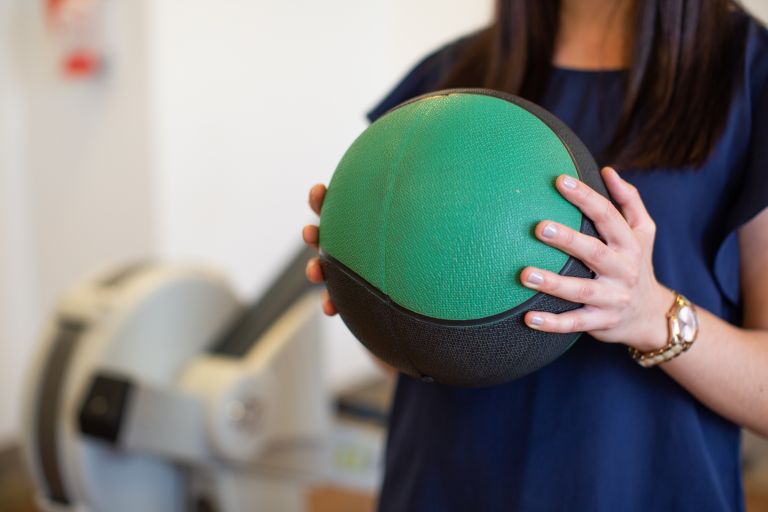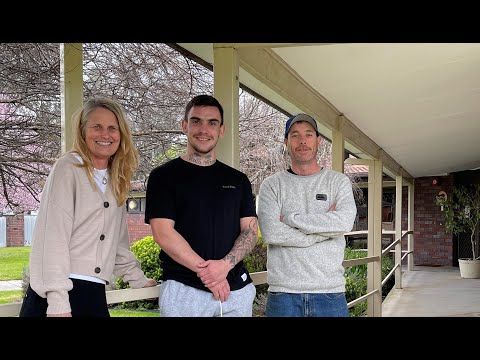Our Transitional Living Unit is called Tarkarri and Tarkarri is an Aboriginal word for 'creating futures for people'.
My name's Jenny Goodfellow and I'm an occupational therapist and also the coordinator of our Transitional Living Unit in Lavington.
So our program is all about working with people who have experienced either a traumatic or an acquired brain injury.
They come to our program often from hospitals but sometimes they have been in the community for a while.
They come to our program to work on the skills they need to get back to life so it's very much about working on independent living skills, working on the clients goals, what's important to them, looking at their life roles and responsibilities, and helping them learn the skills and strategies that they need to be able to navigate life and create the future that they would like.
My name's Cooper Maher.
I am 24 now.
So, I had a car accident in November,
I was at a mate's funeral, ended up somehow getting into some car, and flipped it and come out the front windscreen at about 120 odd k.
But, yeah, it's just changed everything, especially being a parent, that was the hardest thing being a parent, it changes that, you have to learn how to deal with the kids again.
Like, not so much dealing with them but just the noises and things like that.
I've got a lot better but at the start it was pretty full on but, yeah life's changed a lot but getting better, getting a lot better.
Tarkarri's helped me a lot after my car accident especially the girls here.
Every single one of them, if they're OT to Physio to whatever they're doing.
If they're just here they've helped a lot.
I believe I wouldn't have got as better as I am as quick as I did if I did not come here.
It took me a bit to get up here, I was nervous to come here at the start.
But I got here, and it helped, so I wouldn't change it for anything.
This is the way I would want to get better, is to come here to definitely get better, especially with a brain injury.
Hi, my name's Adam Scott.
In late February I was involved in an assault.
I didn't really know what to expect actually, this is all very new for me,
I obviously have no experience in this.
But walking into here is the best thing I've done.
Just the support, the trust and everything you get here has just made it so much easier.
Just re-learning the basic fundamentals of day to day living which has been confronting and challenging.
just with coordination, balance. There is a lot of mental health around the injury as well so working through that.
This is a hidden injury that is very silent but to me it's not silent in my head.
It's very hard to explain to someone that hasn't gone through this injury.
But it definitely does change your perspective and everything on life, and yeah.
I continue to hold a very positive outlook on the situation that I am in, and I have learnt a hell of a lot in here to help me with that.
I think when people come here, the biggest thing is they actually walk in the door, and it doesn't take long for people just to go 'Ohh!
This feels good' and for people to realise that this is not a hospital by any means.
We don't wear uniforms, we're very casual.
We have fun, you know, we work hard, and the clients work really hard!
But it's a really enjoyable, supportive experience and people that come here make friendships and connections with people that they continue beyond here.
So, whilst I understand it's a challenge getting here and it is the unknown, and we are the unknown,
I think once people get here, they actually get a lot out of it and that's just beautiful to watch.
I think I can speak on behalf of all the staff here, we love working here.
We're very passionate about brain injury, we are very team orientated, we work really well together and the clients and the people we work with are all part of the team, so we're just one big team working on common goals.
English

